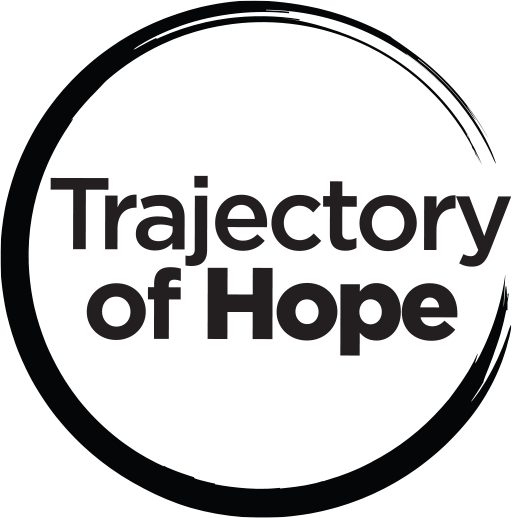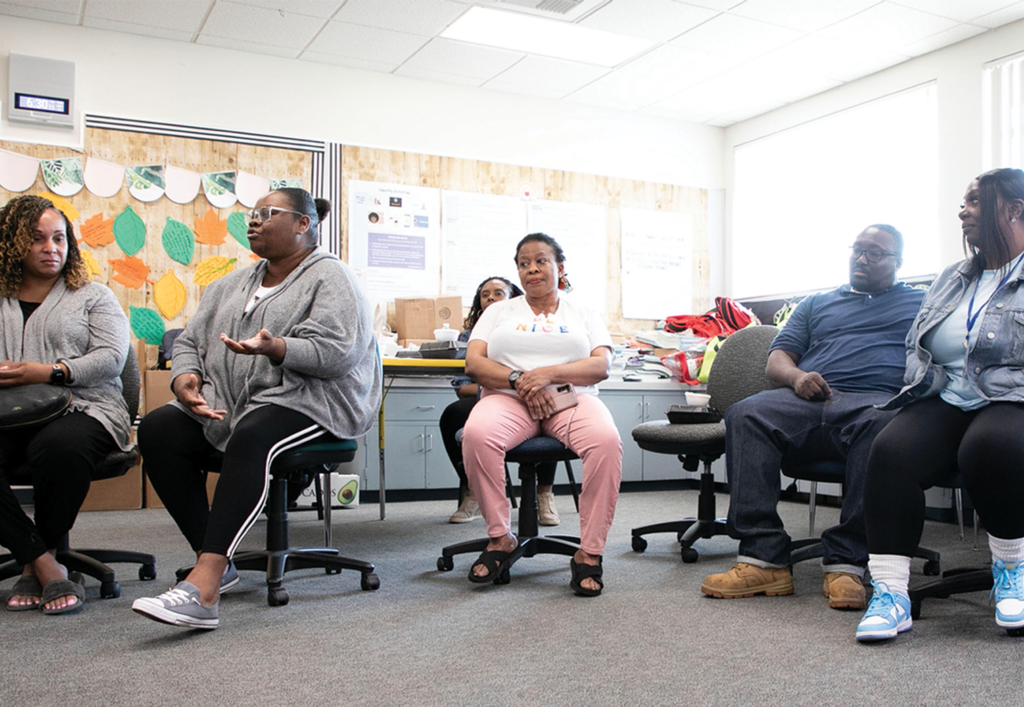It’s six o’clock in the evening at a school in LA county. The bustle of after school program
pick-up has subsided as the sun sets over the blacktop and the last few staff members pull out
of the parking lot. The sun filters through the windows of the school’s family center, casting
warm rays on the gathering of Black parents and families who have come together for a
bi-monthly family affinity space. The voices of their children can be heard in the classroom next
door – some eating dinner while completing their homework, others reading in bean bag chairs,
while their younger siblings play on the carpet, building structures with a Lego Duplo set.
In this family affinity space, a mom, who recently moved to the neighborhood, finds herself
surrounded by welcoming faces, sharing advice and local resources. She is one of four
members of the affinity space who are single parenting. “I needed this,” she says, exhaling a
sigh of relief. Another parent, holding a cup of coffee, listens intently to a fellow parent’s journey
in navigating the IEP process with their son, nodding in understanding and solidarity. As the
discussion comes to a close, a Trajectory of Hope facilitator prompts families to think of one
word to encapsulate how they are feeling after engaging in community together. One at a time
the families chime in: “Seen.” “Energized.” “Empowered.” “Nourished.”
Affinity spaces for the families of Black students are one of Trajectory of Hope’s core service
offerings, intentionally designed to strengthen community bonds while bridging connections
between home and school. These spaces are inclusive and affirming, often composed of
multigenerational caregivers (moms, dads, aunties, uncles, grandparents, godparents, cousins)
and largely participant-driven. Dr. troya ellis, co-founder of Trajectory of Hope, explains, “The
community already existed before we showed up. We are simply elevating the collective wisdom
of the group and deepening connections through authentic listening and conversation.”
This community-centered and constructivist design not only elevates the voices and
perspectives of Black families but also counteracts deficit narratives often reinforced by
traditional family outreach initiatives and antiquated school communication structures. Affinity
spaces offer an invitation for families to reflect and foster self and community awareness without
imposing directives. According to Britney Foster, co-founder of Trajectory of Hope, “Affinity
Spaces allow Black families to simply be. To exist as their full and authentic selves in
community with one another.” As Black families reclaim a sense of wholeness and belonging within the
school community, so do their children. Foster elaborates, “When kids see that their family feels
protected and recognizes school as a safe place, they internalize that.”
The importance of such spaces cannot be overstated. Tangible outcomes attest to the ripple
effects of this investment in designated spaces for Black families. Across Trajectory of Hope
partner schools, affinity spaces have spurred organic engagement through:
● Family-led online support groups (via GroupMe)
● Joyful holiday celebrations, including Black History Month
● Student affinity groups running concurrently with their families
Family affinity spaces are more than gatherings: they are an affirmation of the power of
community. As we consider the holistic needs of Black students and their families, it is crucial
for district and school leaders to consider how spaces like these can be integrated within
educational settings.

